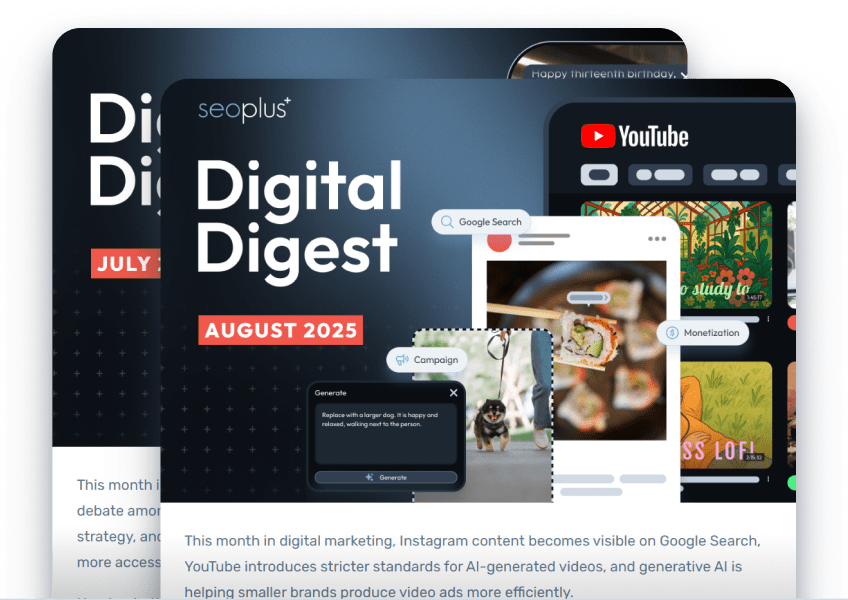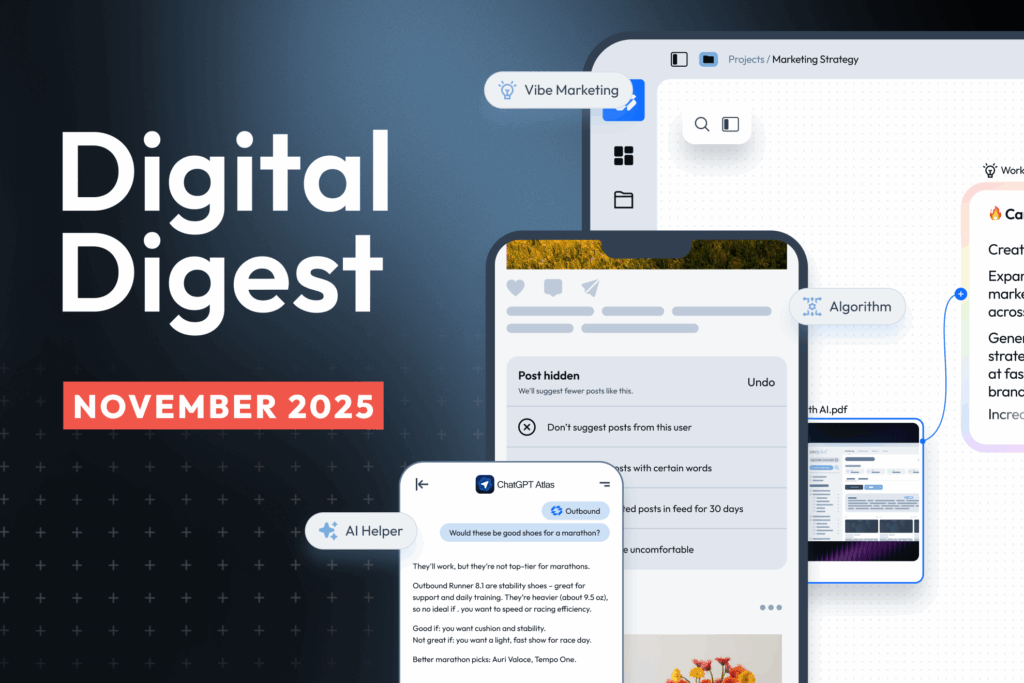Let’s get to it – yes, there is still a pandemic; yes, it’s been a few months; yes, we are still working from the couch and definitely not in sweatpants.
Now let’s talk about why we are actually here – to deliver October’s digital marketing news and share our take on these major developments. We review online journals, blogs, and newsletters to scope out the most valuable and interesting updates to share with you. Without any further ado, here is October in a snapshot:
Google Podcasts Manager—coming soon to devices near you…
It seems that everybody has a podcast nowadays. And of course, Google must participate in the popular technology, so it’s not just Spotify and Joe Rogan dominating the industry. The new service Google is offering is called the Google Podcasts Manager, which will provide podcasters with listener analytics data and help get more listeners from Google. Our Paid Ads Specialist Frank shared his opinion on the new tool:
As someone who is trying to grow a podcast organically, I am excited to start using Google Podcast Manager. It shows that Google sees the value in podcasts. I am looking forward to seeing how this new service will help me gain more listeners and track key metrics. As a marketer always living that marketing life, knowing the data such as clicks and impressions will help me publish valuable content.
Holiday shopping 2020: Is your SEO ready?
It’s no secret that holiday shopping will look different this year. Think more online shopping and way less crowded malls. Instead of desperately trying to wrap a present with not much success, lots more people will click “add gift wrap” on Amazon and leave it at that. Here is what else the research says:
- Major retailers will not be holding in-store Black Friday events this year, suggesting they will have lots more online sales instead.
- “An impressive 60% of consumers have been shopping online more often since COVID-19, and of that group, 73% plan to continue after the pandemic. What digital marketers and SEOs have long known is finally coming to fruition: online shopping is convenient and easy. Now the trick is to make SEO important within your organization.”
If a user searches on Google for what they want, are you going to come up as the best provider of the product or service? Make sure you are prepared by devoting time to your SEO and website.
Google explains mind reading
Ever wonder how Google completes your searches with auto-complete predictions? Not that we need any more mind-reading technology, understanding the way this works is actually really cool. Google’s Danny Sullivan explains that the Autocomplete feature begins by analyzing searches that have been done on Google, looking into common and trending queries that match what you are typing in. Google also takes into account your location, your language, and other characteristics that help it tailor the predictions just to you. This is especially useful for SEOs doing keyword research.
No more request for indexing (temporarily…)
We have disabled the “Request Indexing” feature of the URL Inspection Tool, in order to make some infrastructure changes. We expect it will return in the coming weeks. We continue to find & index content through our regular methods, as covered here: https://t.co/rMFVaLht6V
— Google Webmasters (@googlewmc) October 14, 2020
In Google Search Console, the URL Inspection Tool has a feature to “request indexing.” This feature can be used to request manual indexing of the website as opposed to relying on Google to index your website automatically. The new change that Google has implemented is the temporary suspension of this feature, citing infrastructure changes as its reasoning.
Infrastructure changes are required because there have been a lot of indexing issues for the past 2 months – from an August glitch that negatively affected search results, to an October update from Search Liason where Google said there are issues with mobile indexing and canonicalization, resulting in companies getting their home pages and other key pages de-indexed for no reason.
We are currently working to resolve two separate indexing issues that have impacted some URLs. One is with mobile-indexing. The other is with canonicalization, how we detect and handle duplicate content. In either case, pages might not be indexed….
— Google SearchLiaison (@searchliaison) October 1, 2020
A lot of SEOs are mad about the change but John Mu from Google says that most websites don’t even need this feature nor do they ever use it:
Just for context, this does not affect normal crawling and indexing. In general, sites never need to use this feature (and most of them have never used it at all). https://t.co/nfOlB3w4kZ
— 🌠John 🌠(@JohnMu) October 14, 2020
Our own SEO team agrees with John,
If you have an established website, this is not a huge issue as this does not affect Google’s regular crawling & indexing. If you have a new website, indexing could be delayed but you can speed up the process by ensuring you have proper internal linking, sharing on social media and getting backlinks,” our SEO Specialist Justin noted.
Even if you try to use the tool, you will see it is greyed out in Search Console. This is a good time to double-check the best practices for your website to ensure regular indexing goes as planned. The best practices include submitting your sitemap to GSC and ensuring there is nothing in your htaccess, robots.txt, or page code blocking Googlebot! This is probably 90% importance when it comes to getting a page in the index.
In conclusion, Google is releasing yet another new service to infiltrate a new industry and the company is also improving its infrastructure and algorithm processes. In other news, businesses, especially those in e-commerce, need to start preparing for holiday shopping ASAP and have plans in place to follow the new trend of predominantly shopping online. Shipping times and relationships with suppliers will be super important so people get their gifts in time for the holiday they celebrate! Until next time.






